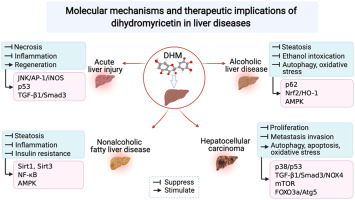Which Hangover Remedy Ingredient is Most Effective? DHM, Curcumin, N-Acetylcysteine, or B Vitamins
Hangover supplements work mainly by speeding up alcohol metabolism, protecting the liver, and relieving discomfort. Common hangover ingredients include dihydromyricetin, curcumin, N-acetylcysteine, and B vitamins. These ingredients should be chosen based on individual body needs, but they cannot replace healthy habits like drinking less.
What are the Hangover Remedy Ingredients?
1. Dihydromyricetin (DHM)
DHM is a natural flavonoid, and it is often found in plants like vine tea. Dihydromyricetin works by protecting the liver and regulating alcohol metabolism. Before we understand how DHM helps with hangovers, we first need to know why alcohol makes us uncomfortable. The body processes alcohol mainly through the liver. It is first converted by an enzyme into toxic acetaldehyde, and then by another enzyme into harmless acetate. So if you drink too much, acetaldehyde can build up in your liver. That’s when you get a headache and start feeling nauseous.
Studies show DHM can boost the activity of the enzyme that breaks down acetaldehyde. This speeds up the removal of the toxin. DHM also has antioxidant and anti-inflammatory effects. It reduces damage to liver cells from alcohol and eases the liver’s burden.
Fig 1. How dihydromyricetin sobers up and protects the liver[1]
2. Curcumin
Curcumin is the active ingredient in turmeric. And it is known for its strong anti-inflammatory and antioxidant properties. Curcumin works by reducing oxidative stress and inflammation caused by alcohol. Unlike DHM, curcumin focuses more on relieving secondary hangover symptoms. It does not directly speed up alcohol breakdown.
Drinking alcohol increases free radicals, which damage the liver and other tissues. However, curcumin can neutralize these free radicals. Alcohol also activates inflammation pathways, leading to headaches and tiredness. Correspondingly, curcumin can also block these pathways and reduce inflammation.
3. N-Acetylcysteine (NAC)
NAC is an amino acid derivative that is often used to support respiratory health and detoxification. Its hangover effects are linked to glutathione production. Glutathione is a key antioxidant in the liver. It directly neutralizes the toxicity of acetaldehyde. Drinking alcohol uses up a lot of glutathione and then increases oxidative stress. NAC is a building block for glutathione. It can quickly raise glutathione levels in the body and subsequently enhance the liver’s detoxification capacity. NAC also reduces cell damage from acetaldehyde, thus it helps ease symptoms like nausea and headaches.
Fig 2. The mechanism of action of N-acetylcysteine (NAC)[2]
4. B Vitamins
B vitamins include B1, B2, B6, B12, and folate. They play a key role in energy metabolism and nervous system function. Alcohol interferes with the absorption and use of B vitamins. This can lead to deficiency. Deficiency causes tiredness, low mood, and thinking problems.
Taking B vitamins can help restore normal metabolic function:
- Vitamin B1 (Thiamine) helps with sugar metabolism. It can relieve energy depletion after drinking.
- Vitamin B6 aids in making neurotransmitters. It can improve mood and sleep.
However, B vitamins do not directly break down alcohol or acetaldehyde. They help by fixing nutritional imbalances. And this indirectly relieves hangover symptoms.
Reference: Vitamin Guide: 14 Important Vitamins for Health
Effectiveness Comparison: Which is Best?
These ingredients have different strengths and suit different situations:
- DHM: It is excellent at speeding up alcohol metabolism. It is especially suitable when you need to lower blood alcohol levels quickly. However, it must never be used as an excuse to drink and drive. Its advantage is directly targeting acetaldehyde breakdown.
- Curcumin: It is strong in fighting inflammation and oxidation. It is good for relieving inflammation-related hangover symptoms like headaches and muscle aches. But it has low absorption. It is often taken with black pepper extract. Its effects are slower. It is more suitable for long-term liver health.
- NAC: It is very effective for detoxification and liver protection. It is especially useful for preventing oxidative damage from alcohol. If taken beforehand, it may reduce the risk of a severe hangover. But its immediate hangover relief is not as strong as DHM’s.
- B Vitamins: They mainly play a supporting role. They improve overall states like tiredness and brain fog by correcting nutrient deficiencies. They are often used with other ingredients. Their effect is limited when used alone.
For the goal of “quick relief,” DHM and NAC may be more directly effective. Curcumin and B vitamins are better for overall adjustment and long-term health. In practice, many hangover products combine these ingredients for a combined effect.
In summary, DHM, curcumin, NAC, and B vitamins each have their own merits for hangovers. Your choice should depend on your personal needs and symptoms. Using these ingredients scientifically and rationally can help relieve discomfort. But remember, they are only aids. Real health requires controlling alcohol intake at the source.
Stanford Chemical Company (SCC) offers nearly 800 products. Our portfolio includes hyaluronic acid, herbal extracts, food additives, and nutraceutical ingredients. These include Dihydromyricetin (DHM), Curcumin, and B Vitamins. Please feel free to contact us for a quote and more information.
[1] Jingnan Chen, Xitong Wang, Tian Xia, Yanhua Bi, Bin Liu, Junfen Fu, Runzhi Zhu, Molecular mechanisms and therapeutic implications of dihydromyricetin in liver disease, Biomedicine & Pharmacotherapy, Volume 142, 2021, 111927, ISSN 0753-3322, https://doi.org/10.1016/j.biopha.2021.111927.
[2] Brandán Pedre, Uladzimir Barayeu, Daria Ezeriņa, Tobias P. Dick, The mechanism of action of N-acetylcysteine (NAC): The emerging role of H2S and sulfane sulfur species, Pharmacology & Therapeutics, Volume 228, 2021, 107916, ISSN 0163-7258, https://doi.org/10.1016/j.pharmthera.2021.107916.


